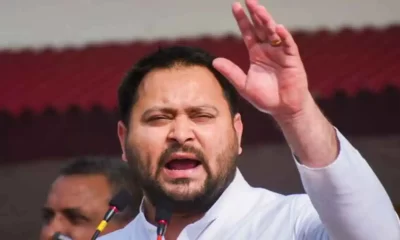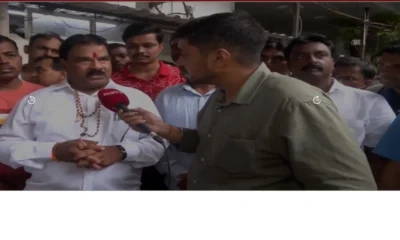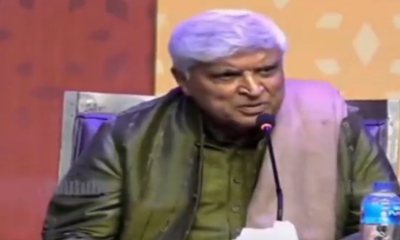Latest Politics News
WATCH: PayCM posters with Basavaraj Bommai face surface in Bengaluru, Police removes poster at CV Raman road
The development comes in the midst of Congress accusing Chief Minister Bommai of corruption in public contracts and government jobs in Karnataka.

India News
Ajit Pawar’s son seeks detailed probe into Baramati plane crash
Jay Pawar has demanded a comprehensive probe and action against the aviation firm after the Baramati plane crash that killed Ajit Pawar and four others.
India News
PM Modi sends congratulatory letter to Tarique Rahman after swearing-in
Lok Sabha Speaker Om Birla handed over Prime Minister Narendra Modi’s congratulatory letter to Bangladesh Prime Minister Tarique Rahman following his swearing-in and extended an invitation to visit India.
India News
Navjot Kaur Sidhu says Rahul Gandhi disconnected from ground realities
Navjot Kaur Sidhu criticises Rahul Gandhi after exiting Congress, alleging corruption in the Punjab unit and predicting defeat in upcoming state elections.
-

 India News18 hours ago
India News18 hours agoMK Stalin predicts frequent PM Modi visits to Tamil Nadu before assembly election
-

 Latest world news18 hours ago
Latest world news18 hours agoIndia eyes Rs 8,000 crore mid-air refuelling aircraft deal as PM Modi begins Israel visit
-

 Latest world news4 hours ago
Latest world news4 hours agoPM Modi reaffirms support for Israel, recalls 26/11 victims in Knesset address
-

 Latest world news4 hours ago
Latest world news4 hours agoCanada softens stance on alleged Indian interference ahead of PM Carney’s India visit
-

 India News3 hours ago
India News3 hours agoPM Modi crosses 100 million followers on Instagram, first world leader to achieve milestone
-

 Latest world news3 hours ago
Latest world news3 hours agoPM Modi and Netanyahu pledge deeper defence, trade ties during Israel visit
-

 India News3 hours ago
India News3 hours agoOver 5,000 tribals join BJP in Assam’s Goalpara ahead of elections















